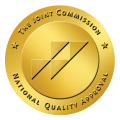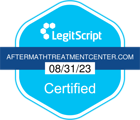Heroin addiction is a chronic disease that can result in severe health problems, including changes in brain function. But the long arm of heroin stretches much further, causing damage to your most important relationships and financial security. To successfully and safely untangle yourself from heroin abuse, you may be searching for “heroin abuse treatment near me.” This is the best first step toward enjoying a lifelong recovery from heroin addiction. Reach out to the friendly team at Aftermath Addiction Treatment Center online or by calling us at 781.587.3636 today to learn more about how our personal experience with drug addiction helps us usher patients through rehab and recovery.
What Is Heroin and What Does It Do?
Heroin is a highly addictive, mind-altering drug derived from morphine. It’s an opioid, a class of drugs that also includes prescription pain relievers like oxycodone and hydrocodone, which have famous brand names OxyContin and Vicodin, respectively.
When a person uses heroin, the drug attaches to a person’s opioid receptors in their brain and body. It most notable sticks in the locations involving and controlling the perception of pain and pleasure, but also in the part of the brain responsible for managing your breathing. The nervous system is then instructed to produce intense feelings of euphoria and pleasure. Heroin also offers temporary relief from severe pain.
Short-term effects of heroin abuse can last a few hours but give the user a rush of good feelings while their breathing and heart rate slows down. However, once the drug wears off, you will experience your first heroin withdrawal, and some of the symptoms of heroin abuse may be visible for all to see. Without the heroin coursing through your system, you may become depressed. You will likely feel intense cravings to do more of the drug and feel all of that intense pleasure repeatedly. If this sounds familiar, you may already be addicted and experiencing heroin abuse symptoms. Reach out to us today to see how our heroin abuse treatment programs can break the cycle of addiction.
3 Symptoms of Heroin Abuse
Heroin abuse symptoms can often be divided into three distinct categories. It can be essential to keep the frame as wide as possible when looking at the picture of heroin abuse in yourself or a loved one because the same drug can and will impact each person differently. Symptoms of heroin abuse will vary depending upon genetic makeup, the length of drug use and misuse, the amount of heroin used, and if other drugs or alcohol are used in conjunction with heroin. Some of the most common symptoms of heroin abuse include the following:
Physical Symptoms
Physical heroin abuse symptoms may be the first thing you notice when a person in your life is using and abusing heroin. Some of the physical signs and symptoms of heroin abuse include:
- Scabs or bruises on the skin
- Constant runny nose
- Dramatic weight loss
- Track marks on legs or arms
- Slurred speech
- Warm flushing of the skin
Behavioral Symptoms
After the physical damage and changes caused by heroin, you will begin to notice behavioral symptoms of heroin abuse, such as the following:
- Increased isolation
- Lying
- Wearing long sleeves and pants regardless of the weather
- A sudden need for money
- Sleeping more than usual
- Failing at work, home, or school responsibilities
Cognitive Symptoms
While physical and behavioral changes are likely easy to spot, these cognitive symptoms of heroin abuse can not reveal themselves as quickly.
- Disorientation
- Mental fogginess
- Inability to focus
- Decrease in problem-solving ability
Learn More at Aftermath Addiction Treatment Center
Heroin grips its users tightly, but you can overcome heroin abuse and addiction. Our compassionate team has personal experience with your journey, and they can help. Our heroin abuse treatment program is where your recovery journey begins. Contact us using our secure online form or call us confidentially at 781.587.3636 today.







